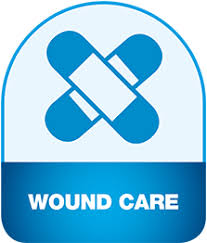
Ryan Moseley
Cardiff University
Title: Development of epoxy-tigliane pharmaceuticals as novel therapeutics for dermal fibrosis
Biography
Biography: Ryan Moseley
Abstract
Excessive dermal scarring/fibrosis poses major challenges to Healthcare Services worldwide, confounded by existing therapies being unsatisfactory at treating fibrosis. Therefore, there is significant need for novel anti-fibrotic therapies with improved efficacy. We are evaluating the novel healing properties of epoxy-tiglianes (EBC-46, EBC-211), isolated from the Fontain’s Blushwood Tree indigenous to Queensland’s tropical rainforest. EBC-46 possesses potent anti-cancer properties and stimulates exceptional healing following tumour destruction, manifested as accelerated wound re-epithelialisation, closure and minimal scarring. To elucidate their anti-scarring properties, we assessed epoxy-tigliane effects on fibroblast proliferation, migration; and transforming growth factor-β1 (TGF-β1)-driven myofibroblast differentiation/behaviour. Dermal fibroblasts were treated with EBC-46 or EBC-211 (0-10μg/ml). Cell cycle progression/proliferation were assessed by Flow Cytometry
and MTT assay. Migration was assessed using in vitro scratch wounds/Time-Lapse Microscopy. TGF-β1-driven, fibroblastmyofibroblast differentiation was examined by immuno-cytochemical/QRT-PCR detection of α-smooth muscle actin
(α-SMA) expression/stress fibre formation. Epoxy-tigliane-induced gene expression changes were quantified by Microarrays, confirmed by protein level analyses. Both epoxy-tiglianes significantly retarded fibroblast proliferation, although neither affected migration. Although α-SMA expression/stress fibre organization and myofibroblast formation were unaffected at 0.001-0.01μg/ml or 1-10μg/ml EBC-46, EBC-46 significantly inhibited α-SMA expression/stress fibre formation at 0.1μg/ml, with cells retaining normal fibroblast morphologies. EBC-211 induced similar effects at 10μg/ml. Epoxy-tiglianes up-regulated proteinase, anti-fibrotic matrix component and TGF-β1 inhibitor genes; and down-regulated proteinase inhibitors, pro-fibrotic matrix component and TGF-β1 signalling genes. Epoxy-tiglianes also increased high molecular weight hyaluronan synthesis. Therefore, epoxy-tiglianes modulate fibroblast proliferation, differentiation and matrix composition/turnover, inducing scar resolution. Findings support epoxy-tigliane development as novel anti-fibrotic therapeutics against dermal scarring/fibrosis

